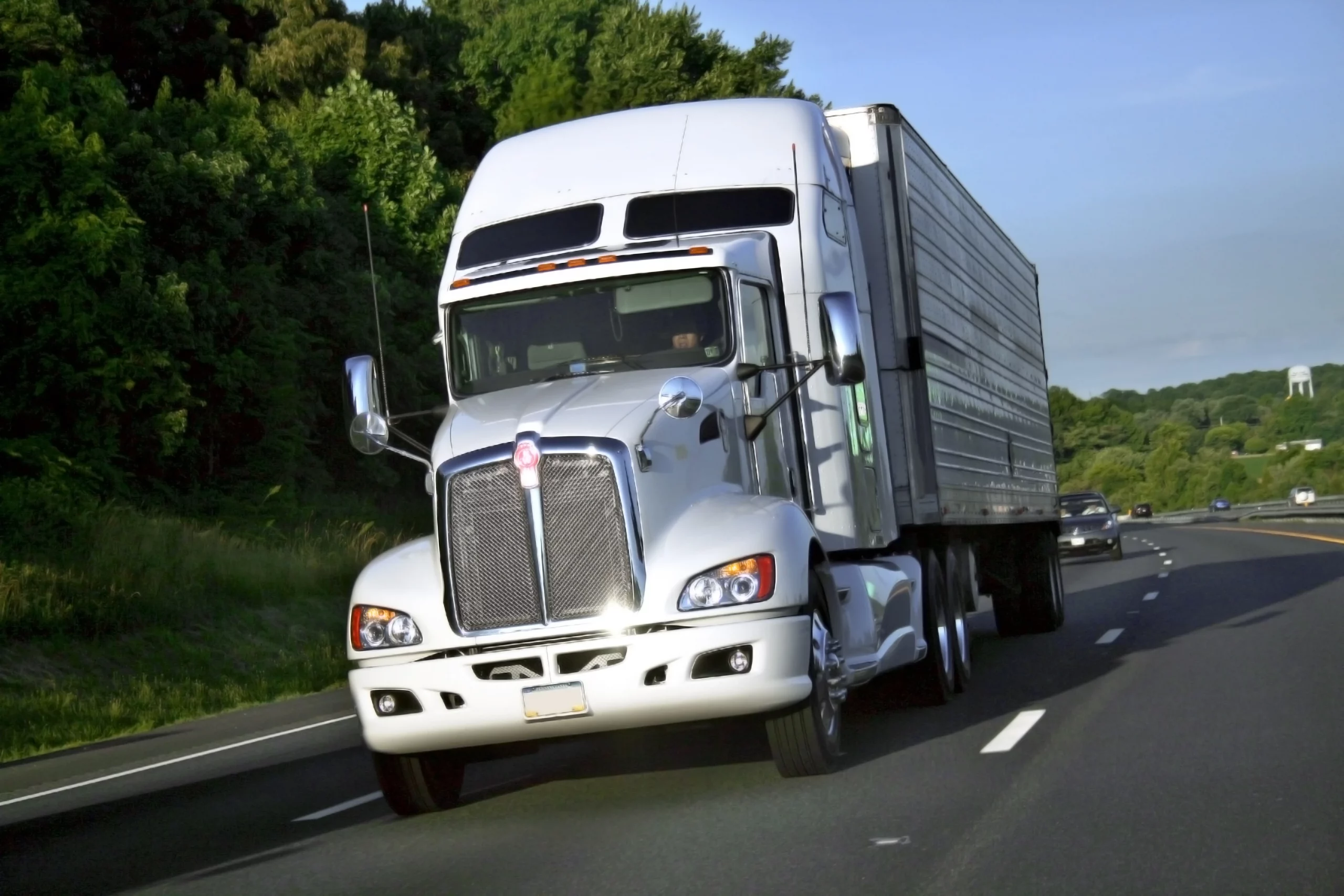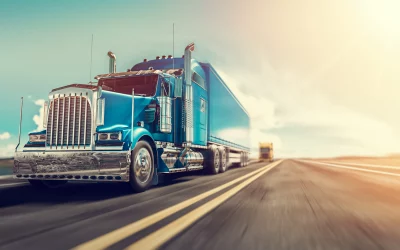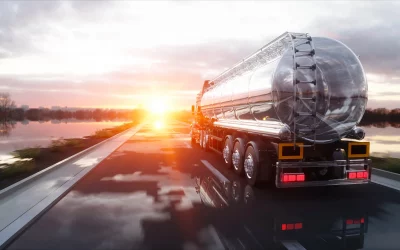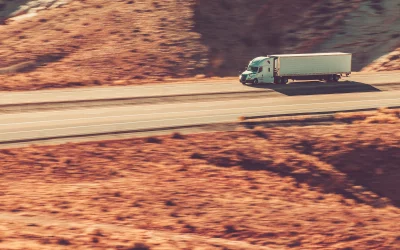AFTER A SEMI-TRUCK ACCIDENT, WHAT SHOULD YOU DO?
You or a loved one may have been hurt, scared, and/or disturbed due to a Colorado truck accident. When one considers the potential for pain and risk in a truck collision, these sentiments are understandable.
Colorado Springs Truck Accidents Can Have Serious Consequences
Trucks may weigh up to 80,000 pounds each. In comparison, the typical passenger car weighs around or 3,000 pounds. In a truck collision, the threat to automobiles and smaller vehicles is obvious. The potential for passenger casualties is considerably larger than if they were struck by a smaller vehicle.
Truck accident injuries are serious enough, and they happen often enough, that the Colorado Department of Highway Safety and Motor Vehicles divides them into incapacitating and non-incapacitating categories. In 2017, 225 truck accidents resulted in incapacitating injuries and 771 injuries that were not incapacitating. That year, 46 people died in truck accidents or roughly four every month.
According to the Federal Motor Carrier Safety Administration, Colorado was one of the top ten states in the United States for truck accident-related fatalities from 2014 to 2016. FMCSA.
Free Consultation
In Person | Phone | Zoom
WHAT SHOULD I DO IF I’M IN A COLORADO TRUCK ACCIDENT?
AT THE TRUCK ACCIDENT LOCATION IN COLORADO SPRINGS
Regardless of your understandable grief, there are a few things you should do following a truck accident in Colorado. The most important thing to do after at truck accident is to be sure you are not still in harms way. If your car is still driveable, move it to the side of the road or out of any location where you could be struck by cars if you are able. Trucks transport goods, which might be hazardous if it flies or falls out of the vehicle. If this happens, move your car away from the danger zone.
SEEK MEDICAL HELP RIGHT AWAY
Colorado Springs has a large number of specialty medical providers. Serious injuries must be addressed right away. Call 911 immediately if you or anybody else is harmed bleeding, lacerated, or unconscious, for example. The 911 call will notify emergency responders, who will dispatch medical staff and ambulances. D
Do not leave the accident area unless you need to be taken for quick medical assistance. Leaving the site of an accident is against the law. Once you’ve ensured your safety, contact law enforcement to report the accident. In other words, call 911to get medical assistance. You should always contact police enforcement when safe to do so.
If an accident results in injuries, deaths, or property damage of at least $500, drivers are obligated by law to notify the police vehicles or other property. A 911 call may also notify police and using this approach can be useful if you’re not sure which division of law enforcement has authority at the collision location.
A commercial motor vehicle, which a truck is, is also obliged by law to submit a collision report. Officers must also submit a collision report if someone was hurt or killed if there was a hit-and-run, if a wrecker will be needed to remove a vehicles, if a motorist was under the influence of alcohol or drugs, or if the damages were more than $500.
AFTER THE ACCIDENT, I SPOKE WITH LAW ENFORCEMENT
When law police come, they will most likely question all parties involved about what transpired. When they speak with you, give them the whole truth about what happened. However, don’t be concerned if the accident seems to happen out of nowhere and you had no idea what occurred. Evidence will provide a subsequent summary of the accident.
As far as you’re concerned, they need to know what happened—exchange information with the truck driver and any other drivers involved after you’ve provided an account. Maintain a quiet and basic atmosphere. Your name, insurance details, and contact information must all be provided, such as an e-mail address.
People who are involved in a Colorado Springs trucking accident are often upset and sometimes furious. However, keep in mind that interactions with the police and other drivers are essential. The sooner you complete these chores, the sooner you may return home.
Do not directly chastise or threaten any motorist. Tell law police if you believe another motorist caused the accident or if a driver seemed tired or under the influence of alcohol or another drug when you talked to them. It will then be included in the evidence gathered by law enforcement about the accident. It is the responsibility of law enforcement to follow up on the driver’s condition.
THE ACCIDENT SCENE EVIDENCE
It’s a good idea to snap images before leaving the place. Many individuals carry a smartphone. If you do, document any injuries you’ve received as well as any damage to your car. Take photographs of the accident scene, including any other cars that may have been involved. Their location and any traces of the incident on the road may all help determine the cause of the accident.
Photos might be beneficial if you wish to file a legal claim for your injuries. The breadth and severity of the injuries may be seen in photographs taken at the time they happened. Because your injuries may heal fast, it’s critical to document them as soon as possible.
If you don’t have access to a smartphone, make some notes on what occurred while still fresh in your memory. Obtain a copy of the police accident report or arrange for it to be provided to you.
AFTER YOU’VE LEFT THE SCENE
Even if you didn’t contact 911 for medical help, you should visit a doctor or go to the emergency hospital as soon as possible following the accident. Concussions, internal injuries, and other ailments may occur without a person feeling hurt or realizing the depth of their injuries.
Asking a doctor to examine you is the best course of action. A doctor can advise you on coping with any injuries and stress that may have occurred as a result of the event.
While a doctor’s visit is primarily intended to guarantee your health and safety, it may also serve as proof if you need to submit a legal claim after the accident. After all, doctor records are a record of your accident injuries.
CONTACT YOUR INSURANCE COMPANY
Contact your insurance company as soon as possible after your accident. Colorado is a no-fault state, which means that your insurance will pay for your losses regardless of who was at fault in the accident.
Personal injury protection MedPay is compulsory for Colorado drivers. MedPay is essential for drivers to be compensated for economic losses incurred as a consequence of an accident. Medical costs, for example, are an example of damages since you would not have incurred them if the event had not occurred.
Lost wages from work are also covered if your injuries forced you to miss time at work due to the accident. In Colorado, drivers must additionally carry $10,000 in property damage liability PDL insurance to cover damage to their vehicle or other property due to the collision.
WHAT HAPPENS IF MY INSURANCE DOESN’T COVER THE DAMAGES?
Many individuals recognize that the obligatory $5,000 medical payments coverage won’t cover much in the way of medical expenses. Truck accidents involve serious injuries, and medical expenses and missed pay from work might be much greater.
Thankfully, Colorado law gives a solution to this problem. As defined by the law, people who have been seriously wounded may file a personal injury lawsuit in civil court for monetary damages. This is known as “stepping outside” of the no-fault zone.
In addition, victims who are not covered by a no-fault policy may file a claim for non-economic losses, which are not covered by most no-fault plans. Compensation for pain and suffering and other forms of emotional anguish are examples of non-economic damages. According to Colorado law, a significant injury must involve at least one of the following:
Significant asymmetry
Permanent restrictions on the use of a body part or organ
Significant restrictions on the use of a bodily function or system
An injury that leaves you disabled for at least 90 days.
Keep track of all medical visits and treatment connected to your injuries if you are injured in a truck accident. Costs from ambulances and emergency rooms and hospital, pharmacy, doctor, urgent care clinic, and physical or rehabilitative therapist bills are all important.
WHAT IS A TRUCK ACCIDENT CLAIM?
Injured people who have suffered significant injuries, as defined by law, may submit a claim against the liable party’s insurance company instead of filing a personal injury claim in court. A third-party insurance claim is what this is called.
People who have been wounded in a truck accident should be aware that third-party insurance claims in truck accidents may be complicated for various reasons. Before making a judgment, consult with an attorney who specializes in third-party insurance claims.
Insurance firms are experienced negotiators regarding claims, yet their goals may vary significantly from those of the affected parties. The firms’ self-interest is to keep claim payouts to a minimum.
Even if their truck driver was entirely at blame for the accident, they might still try to blame the wounded party. It is part of their business to protect themselves from responsibility as much as possible.
However, there’s another reason why third-party claims in transportation accidents might be difficult. Each possibly guilty party may have separate insurance, and there might be a lot of them in a truck accident.
The driver, if the collision was caused by human error.
The truck’s owner if the accident was caused by its condition or failure to repair or maintain it correctly.
The trucking business if the accident was caused by the truck’s condition or a failure to sufficiently educate or employ competent drivers.
The maintenance and repair firms were responsible for the truck’s maintenance and repair, and the accident was caused by the truck’s condition or failure to repair or maintain it correctly.
The loaders, if the accident was caused by a failure to properly load or secure the goods.
The vehicle’s or parts’ makers if the accident was caused by faulty or malfunctioning components, parts, or the truck itself.
Each of these people may be totally to blame for the accident or may have contributed to it somehow. A court may find any parties accountable for any damages resulting from the accident if they broke what is known as a duty of care under the law. However, determining who is to blame for a truck collision typically requires an investigation.
For example, a jackknifed truck may seem to be the result of a truck driver’s mistake. However, a thorough analysis may discover that the brakes or tires were frayed and required to be changed.
Both are common causes of truck error, and depending on who had formal duty for maintenance and repair; they might be the owner’s fault, the trucking business, or the maintenance and repair, staff.
Similarly, improper cargo loading and securement may lead to truck accidents by unbalancing the vehicle, increasing the risk of a rollover, and making the truck difficult to drive. Multiple parties may cause an accident, but their insurance may be with various carriers, with varying terms and conditions.
SEEK THE ADVICE OF A SEASONED TRUCK ACCIDENT LAWYER
An experienced truck accident lawyer may assemble a team of investigators, including forensic experts. He or she may also collect accident reports. Truck accidents may be investigated by federal, state, and municipal authorities.
Experienced truck accident attorneys may request these documents and police accident reports, and emergency personnel records. They can ensure that witness evidence is obtained and access to any security camera material that may be accessible.
Contact an expert truck accident attorney in Colorado if you need further information or help with a truck accident. Having a truck accident lawyer on your side may help alleviate the stress that comes with negotiating and litigating a claim on your own. Our phone number is 719-300-1100







